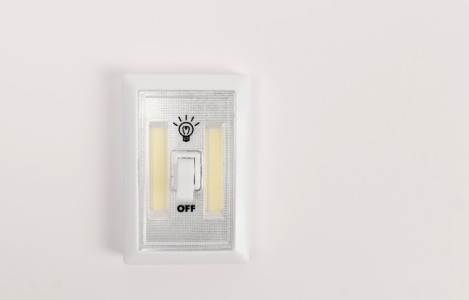Brace yourself for winter: Top money-saving tips shared by pensioners
- Replies 16
Winter is coming, and we all know what that means: skyrocketing energy bills. But don't lose hope just yet! Here at the Seniors Discount Club, we love uncovering money-saving gems.
This time, a couple of thrifty pensioners in Australia have shared some clever tips to help you slash your energy expenses by as much as a whopping 30 per cent!
In Melbourne, 67-year-old pensioner David Slape from Altona North managed to reduce his bills significantly by simply making a few changes around his home. David was sensible enough not to compromise on comfort - after all, 'you don't want to freeze,' he told 9News.
As a pensioner and Salvation Army volunteer, David firmly believes that 'when you're on a pension, every little bit does help, and it's that satisfaction of having done it yourself.'

So, how did David achieve this impressive feat? He made small adjustments, like being vigilant about turning off appliances and devices when they're not in use. David also introduced energy-saving measures like limiting his showers to just four minutes with the help of an egg timer and participating in AGL's Peak Energy Rewards program.
The program notifies customers of periods of high demand on the grid, encouraging them to reduce their energy usage during that time. Customers can receive up to $10 in bill credits for each high-demand period, which often lasts between one and three hours.
Credit: AGL Energy.
How does AGL's Peak Energy Rewards program work?
Joining the Peak Energy Rewards Program is optional, and it means you'll become part of a community of people who are willing to make small changes in their homes to use less energy during times when there is high demand.
These changes help ensure that energy remains affordable and reliable when it is needed the most, and they also help establish sustainable habits that benefit the community in the long term.
Peak events occur when there is a high demand for energy due to factors like weather conditions. These events typically last for one to three hours.
AGL will send you a text message to let you know when a peak event is scheduled so that you are aware. If you choose to participate, you can decide to reduce or adjust your energy usage during the event.
For example, you may choose to adjust your air conditioner temperature or delay using certain appliances like a washing machine or electric oven until after the event. You can find more ways to make small changes that have a big impact.
Once a peak event is over, AGL will send you an email report detailing your energy usage, and if you meet the energy reduction targets, you will be rewarded with credits on your bill.
Participating in these events is entirely up to you. AGL will send you a text message asking if you want to participate, and you just need to reply with a YES to confirm your participation.
But David's not the only savvy senior out there! Lofty, a 74-year-old retiree from Newcastle, found another way to save money on his power bills. He shared his method with A Current Affair.
'All the power that comes into the (metre) box, you don't have to pay for. It's only going from the box into the house that you have to pay for,' Lofty explained. 'That's what I cut off when I turn all those switches off.'
Every day, Lofty turns off his electricity at 8:00 am, then runs his radio on $1.25 batteries, which he has an interesting technique to make last longer. He puts the batteries in a plastic bag, two at a time, and stores them in the freezer, allowing them to recharge over seven days.
Lofty has other unique ways to cope with limited power, including boiling water in a jug and transferring it to a thermos, ensuring he has enough hot water throughout the day.
Lofty's electric schedule includes switching his power back on at 11:30 am for lunch and then turning it off again at 11:55 am, only to turn it on again at 5:00 pm for the night. Since adopting this self-imposed blackout, his energy bill has been reduced from $678 to only $152.72, with a credit balance of $522!

Despite Lofty's success in saving money, his approach has been met with mixed opinions. Electrician Alex Murker is sceptical: 'I think it's a bit bizarre, to be honest, going out to the metre box and turning everything off... I'd be worried about the fridge going off every day and things not staying cool.'
Regardless of each person's unique methods, the message comes through loud and clear: adopting small changes in our daily routines can lead to substantial savings.
Canstar Blue's Editor-in-Chief Christine Seib recommends following in the footsteps of our frugal predecessors: 'Think a lot like your grandparents would have. Give up your long hot showers; throw on a jumper rather than putting on the heating.'
Seib also highlights modern solutions for curbing energy usage, such as power boards that monitor standby energy use or installing an energy monitoring system that identifies the most energy-consuming appliances in your household.

Stay warm and save money this winter, folks! Armed with these tips from resourceful seniors, we can brace ourselves for the cold months ahead without breaking the bank. For more energy-saving advice, check out one of our previous articles here.
Do you have any additional tips and tricks you'd like to share with us? How are you managing to stay warm in this chilly weather? Have you noticed a recent increase in your energy bill? If so, how do you handle it? We would love to hear your thoughts in the comments section!
This time, a couple of thrifty pensioners in Australia have shared some clever tips to help you slash your energy expenses by as much as a whopping 30 per cent!
In Melbourne, 67-year-old pensioner David Slape from Altona North managed to reduce his bills significantly by simply making a few changes around his home. David was sensible enough not to compromise on comfort - after all, 'you don't want to freeze,' he told 9News.
As a pensioner and Salvation Army volunteer, David firmly believes that 'when you're on a pension, every little bit does help, and it's that satisfaction of having done it yourself.'

A pensioner managed to cut his bills by over 30 per cent through simple changes and joining AGL's Peak Rewards program. Credit: Pexels/Pixabay.
So, how did David achieve this impressive feat? He made small adjustments, like being vigilant about turning off appliances and devices when they're not in use. David also introduced energy-saving measures like limiting his showers to just four minutes with the help of an egg timer and participating in AGL's Peak Energy Rewards program.
The program notifies customers of periods of high demand on the grid, encouraging them to reduce their energy usage during that time. Customers can receive up to $10 in bill credits for each high-demand period, which often lasts between one and three hours.
Credit: AGL Energy.
How does AGL's Peak Energy Rewards program work?
Joining the Peak Energy Rewards Program is optional, and it means you'll become part of a community of people who are willing to make small changes in their homes to use less energy during times when there is high demand.
These changes help ensure that energy remains affordable and reliable when it is needed the most, and they also help establish sustainable habits that benefit the community in the long term.
Peak events occur when there is a high demand for energy due to factors like weather conditions. These events typically last for one to three hours.
AGL will send you a text message to let you know when a peak event is scheduled so that you are aware. If you choose to participate, you can decide to reduce or adjust your energy usage during the event.
For example, you may choose to adjust your air conditioner temperature or delay using certain appliances like a washing machine or electric oven until after the event. You can find more ways to make small changes that have a big impact.
Once a peak event is over, AGL will send you an email report detailing your energy usage, and if you meet the energy reduction targets, you will be rewarded with credits on your bill.
Participating in these events is entirely up to you. AGL will send you a text message asking if you want to participate, and you just need to reply with a YES to confirm your participation.
But David's not the only savvy senior out there! Lofty, a 74-year-old retiree from Newcastle, found another way to save money on his power bills. He shared his method with A Current Affair.
'All the power that comes into the (metre) box, you don't have to pay for. It's only going from the box into the house that you have to pay for,' Lofty explained. 'That's what I cut off when I turn all those switches off.'
Every day, Lofty turns off his electricity at 8:00 am, then runs his radio on $1.25 batteries, which he has an interesting technique to make last longer. He puts the batteries in a plastic bag, two at a time, and stores them in the freezer, allowing them to recharge over seven days.
Lofty has other unique ways to cope with limited power, including boiling water in a jug and transferring it to a thermos, ensuring he has enough hot water throughout the day.
Lofty's electric schedule includes switching his power back on at 11:30 am for lunch and then turning it off again at 11:55 am, only to turn it on again at 5:00 pm for the night. Since adopting this self-imposed blackout, his energy bill has been reduced from $678 to only $152.72, with a credit balance of $522!

Another pensioner turned his power off for a few hours daily, saving hundreds of dollars on his electricity bill. Credit: Pexels/Tara Winstead.
Despite Lofty's success in saving money, his approach has been met with mixed opinions. Electrician Alex Murker is sceptical: 'I think it's a bit bizarre, to be honest, going out to the metre box and turning everything off... I'd be worried about the fridge going off every day and things not staying cool.'
Regardless of each person's unique methods, the message comes through loud and clear: adopting small changes in our daily routines can lead to substantial savings.
Canstar Blue's Editor-in-Chief Christine Seib recommends following in the footsteps of our frugal predecessors: 'Think a lot like your grandparents would have. Give up your long hot showers; throw on a jumper rather than putting on the heating.'
Seib also highlights modern solutions for curbing energy usage, such as power boards that monitor standby energy use or installing an energy monitoring system that identifies the most energy-consuming appliances in your household.
Key Takeaways
- A Melbourne pensioner achieved a remarkable reduction of over 30 per cent in his bills by making simple changes and enrolling in AGL's Peak Rewards program.
- Another pensioner from Newcastle managed to save hundreds of dollars on his electricity bill by adopting fixed-time schedules to turn off his power daily. However, an electrician cautioned against implementing this without careful consideration, as it may not be safe or appropriate for everyone.
- With winter approaching, it is anticipated that average electricity bills will increase. Suggestions have been made to combat these rising costs, such as reducing standby energy usage and actively monitoring energy consumption within households.
Stay warm and save money this winter, folks! Armed with these tips from resourceful seniors, we can brace ourselves for the cold months ahead without breaking the bank. For more energy-saving advice, check out one of our previous articles here.
Do you have any additional tips and tricks you'd like to share with us? How are you managing to stay warm in this chilly weather? Have you noticed a recent increase in your energy bill? If so, how do you handle it? We would love to hear your thoughts in the comments section!








